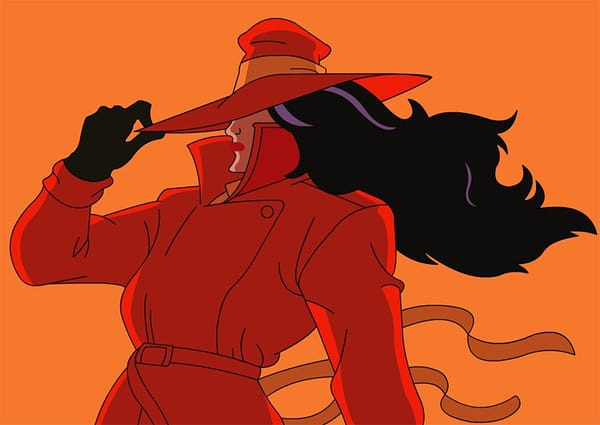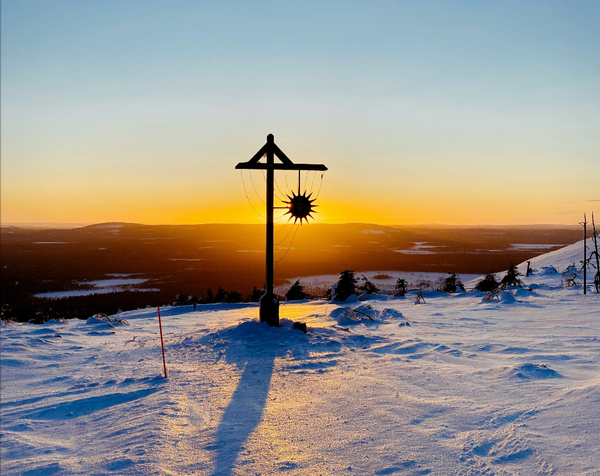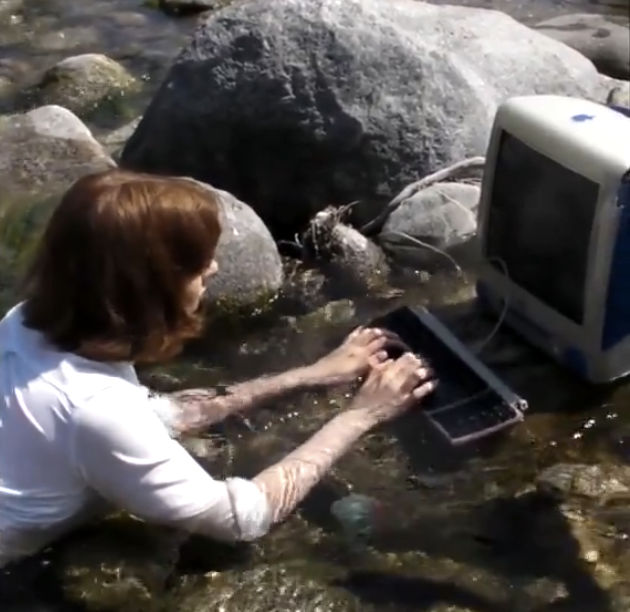Revisiting A Litany for Survival
On Self-Preservation, Audre Lorde and Radical Love

For the last few months, I’ve lived on a street with two names. When I moved into my apartment, it was on Manteuffel Street, named after a Prussian prime minister who opposed democracy in the 1800s. But now, without moving any of my furniture, I live on Audre Lorde Street. Yes, the Audre Lorde, the black, feminist, queer, American poet. The city of Berlin voted to re-name a street after Lorde in 2019, and after years of talk and lots of bureaucratic red tape, it’s finally happened. It wasn’t exactly smooth – the postal workers have been confused and there’s been several lost packages, but overall, it's always a good day when a poet replaces an opponent of democracy.
Decades before her name was honored on a street in Berlin, Audre Lorde was a powerful voice at the intersection of race, class, and sexuality. Through the 1970s, her writing called out systemic oppression and critiqued mainstream feminism and civil rights movements that excluded black and queer people. In 1978, while battling breast cancer, Lorde wrote one of her most iconic poems, A Litany for Survival, which speaks to the constant state of fear and trauma marginalized people live under and urges her readers to fight for their own existence. The poem’s refrain – “We were never meant to survive” – is a reminder that survival itself is a radical act of resistance.
Lorde wrote this poem just before the beginning of the Reagan Presidency, a time that feels like another precursor to the rise of MAGA, Project 2025, and whatever else is coming. There was increased economic inequality, a surge in anti-LGBTQI+ , and intensified racism and sexism with stereotypes like the “welfare queen.” Lorde lived in that atmosphere and after years of fighting it to the detriment of her health and spirit, she decided to do something different. In 1984, at age fifty, she moved to Berlin.
Lorde had been invited to teach at the Free University of Berlin and arrived in a divided Germany, taking up an apartment in the West Berlin neighborhood of Kreuzberg. The documentary Audre Lorde - The Berlin Years 1984 to 1992 captures her life during that time through a combination of interviews with friends & colleagues and home-video-style footage. There’s Lorde at Görlitzer Park eating pink ice cream, Lorde reading in a circle of women, there’s her canoeing at the lake in the summer, dancing to funk music in apartments with big radiators and high, alt-bau ceilings.
In Berlin, Lorde found respite from the relentless pressures of sexism, racism, and homophobia in the United States. But more than just finding relief, she also created something sacred and powerful. She of course taught at the university, but her true work happened around kitchen tables and in living rooms, where she gathered with other writers and activists like May Ahim and Katharina Oguntoye. In a predominantly white society, she created a place for radical conversation and started a movement around black identity, coining the term “Afro-German” and helping other black women connect with each other and reclaim themselves.

But this isn’t a story about running away to Berlin or escaping oppression for good. Because while there’s so much joy in the documentary footage, there’s also the reality that Lorde was still battling cancer and continued to face racism and sexism outside of America. Her activism in Germany was overlooked by those in power, and she and her partner, the black feminist Dr. Gloria Joseph, were often gawked at in public. In The Cancer Journals, Lorde writes, “Racism, Cancer. In both cases, to win the aggressor must conquer. But the resistor need only survive. Now how do I define my survival and on whose terms.”
Survival for Lorde wasn’t about not dying. It was about thriving on her own terms. It was about building a life that didn’t allow oppressive forces to define her identity or joy. It was about cultivating a world of her own full of writing and living room dancing, stringing necklaces on a sunlit terrace and cutting beets around the kitchen table with friends. It was finding fierce pleasure in everyday moments and daily rituals that restored her humanity. Her defiance had a softness, which doesn’t mean she was passive or checked-out. It was her deliberate attention to her own life and her own humanity that kept her alive to the world, allowing her to see the blind spots.
There’s this one scene in the documentary where her partner Gloria recounts how on the day the Berlin Wall fell, Audre was talking about a black African man who’d been beaten up in the U-bahn during this historical moment of freedom. “She could celebrate for the obvious reasons,” Gloria says, referring to the fall of the wall. “but she was also asking, now what?”
Right now a lot of us are asking, now what? For most, leaving the United States isn’t an option, especially people struggling to just make it under the crush of capitalism, racism and patriarchy – not to mention having to live among or work for Americans who wanted this outcome. What I see in Audre Lorde’s story is that self-preservation is necessary and urgent. As she wrote, “Caring for myself is not self-indulgence, it is self-preservation, and that is an act of political warfare.” This election has reminded us again that America does not prioritize the lives and needs of women, and even more so, women of color, marginalized communities, and the working poor. Nobody is coming to save you, and nobody is going to create the space you deserve to experience the depth of your own life. Carving out room for yourself and reclaiming your time and energy, in any small way, is subversive. You’ll probably be called “selfish,” especially if you’re a woman, but that word needs to be reclaimed. True survival demands a radical love for yourself – not the kind of self-centeredness that feeds a capitalist machine, but a love that doesn’t allow anyone to strip you of your life, energy, or humanity.
I recognize that I’m writing this from a position of privilege, as a white woman who has not and will not experience the same weight of oppression as marginalized communities. I also left the United States in 2018, a deliberate choice for my own self-preservation, and I recognize how rare it is to have a choice. If you’re fortunate to have the option to live abroad or you have the financial means and time, consider how you can use your privileges to amplify voices of people who lack this kind of safety. Survival is about solidarity, not just an individual effort. To echo Lorde’s refrain, “We were never meant to survive” – surviving with others is an act of resistance.
I know people are tired and heartbroken, and the idea of rallying feels overwhelming and hollow. Audre Lorde’s story also shows that you don’t have to keeping arguing why you deserve dignity. You don’t owe a messed up political system your endless patience and you don’t have to force yourself to be resilient for politics. Instead, be resilient for you and your people, the ones who are in your corner and the ones that you can support. This is not a single solution, and Audre Lorde’s path isn’t the way for everyone. But her story shows that the real work is inward, finding ways to hold onto ourselves and each other, relationships that long outlast any political party or system.

I was reminded of this when I checked my mail this week. The city sent postcards to everyone on my street, with notable quotes from Lorde, the ones you’re seeing in this post. There’s also a plaque on the corner that recently went up detailing her biography and the bookstore down the street has a section on her works. Seeing these tributes, especially this week, was bittersweet. There’s an irony that a black, queer, feminist American author is being celebrated in Berlin while so much grief unfolds in America.
But I think Audre Lorde would have something to say about this time, too. In one scene from the documentary, she says, “I think despair is an endemic part of revolution because no revolution happens within one lifetime … we all collectively will find an answer. But it is not simple and I do not believe I will live to see it.” Lorde didn’t live to see her full legacy. She left Berlin in 1992, returning to the United States briefly before her death from cancer that year. But her survival, her will to live on her terms, has outlived her. It’s a reminder that the space we make for ourselves and how we choose to live day-to-day is part of a bigger story. We’re not alone. There are generations that will come after us and those after them. All we have to do is keep surviving and trust that if we do our work, others will pick up where we leave off.




